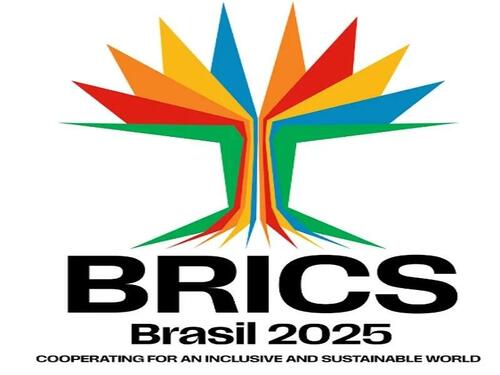Cuts to Scientific Journal Publishing Giant Driven by Cost, Not Content, HHS Says

Source: Children’s Health Defense
The U.S. Department of Health and Human Services (HHS) today appeared to walk back an earlier public statement that the termination of contracts between several U.S. federal agencies and scientific publisher Springer Nature had more to do with cost than content.
In a statement provided today to The Defender, an HHS spokesperson said:
“Science journals are ripping the American people off with exorbitant access fees and extra charges to publish research openly. HHS is working to develop policies that conserve taxpayer dollars and get Americans a better deal. In the meantime, NIH [National Institutes of Health] scientists have continued access to all scientific journals.”
Last week, Axios reported that the Trump administration terminated about $20 million in contracts with the German-owned publishing giant, which publishes approximately 3,000 journals, including its flagship title Nature.
Earlier this year, the U.S. Department of Justice (DOJ) questioned the publisher about its editorial stance, alleging it was taking partisan positions in scientific debates.
The DOJ also reportedly questioned Springer Nature’s links to China, after the company admitted it had restricted access to hundreds of articles covering topics that Chinese authorities considered sensitive.
On Tuesday, MedPage Today reported that Andrew Nixon, top spokesperson for HHS, confirmed that the agency had canceled the contracts. “All contracts with Springer Nature are terminated or no longer active. Precious taxpayer dollars should not be used on unused subscriptions to junk science,” HHS told MedPage Today.
MedPage, Axios, Nature and others decried the cuts, saying they would limit researchers’ access to important science.
In response to the outcry, NIH Director Jay Bhattacharya tweeted Wednesday: “All @NIH employees and scientists continue to have and will continue to have full access to all scientific journals including those published by Springer Nature through the NIH library and the National Library of Medicine.”
According to the NIH website, all peer-reviewed articles on research funded by NIH that are accepted for publication in any journal — including paywalled journals — must be submitted to PubMed Central upon acceptance. PubMed Central archives open-access full-text scholarly articles published in biomedical and life sciences journals.
USDA and DOE confirm they are ending contracts
Axios reported the cuts totaled about $20 million, which is what government spending database USASpending.gov shows had been allocated to pay the publisher this year for subscriptions for seven U.S. government agencies. However, it isn’t clear whether all of those grants are being cut.
Fox News Digital reported that NIH and cancer research contracts were considered “mission essential” and would remain in place.
The USASpending.gov database showed that the U.S. Department of Agriculture (USDA) and the U.S. Department of Energy (DOE) had already cut $3 million in contracts with Springer Nature, Nature reported. It added that due to lag time in updating the database, it was not yet possible to confirm whether there had been additional cuts.
Spokespeople for NASA, DOE, and the USDA confirmed they were canceling their contracts. A USDA spokesperson said, “The journal [sic] is exorbitantly expensive and is not a good use of taxpayer funds,” according to Nature.
A Springer Nature spokesperson said in a statement that the company “continues to have good relationships with U.S. federal agencies” and that it doesn’t comment on individual contracts. “Across our U.S. business there is no material change to our customers or their spend,” they added.
Political bias alleged at some Springer Nature journals
Springer Nature publishes Scientific American, which in 2020 endorsed Joe Biden’s presidential bid. It was the first endorsement in the journal’s 175-year history. In 2024, it backed Kamala Harris.
Springer Nature also publishes Nature Medicine. That journal published the controversial article “The proximal origin of SARS-CoV-2” which concluded that COVID-19 had a zoonotic, or animal, origin. It became one of that year’s most-cited papers, accessed over 6 million times.
The paper helped discredit proponents of the lab-leak theory, who suggested COVID-19 emerged from the Wuhan Institute of Virology in China. Scientists, government officials and media outlets widely cited the paper in efforts to characterize proponents of the lab-leak theory as conspiracy theorists.
In a letter sent March 28 to Joao Monteiro, M.D., Ph.D., publisher of Nature Medicine, then-Interim U.S. Attorney for the District of Columbia Edward R. Martin Jr. questioned whether the journal advocated views that were “influenced by your ongoing relationships with supporters, funders, advertisers, and others.”


This article was funded by critical thinkers like you.
The Defender is 100% reader-supported. No corporate sponsors. No paywalls. Our writers and editors rely on you to fund stories like this that mainstream media won’t write.
Billions more in journal funding under review, according to Axios
In addition to the Springer Nature cuts, billions more in scientific journal funding are under review, according to Axios.
In April, Martin sent letters to several major journals raising concerns about partisan bias. Journals included CHEST, the New England Journal of Medicine (NEJM) and JAMA.
The letters also cited issues regarding misinformation, treatment of competing viewpoints and the influence of advertisers and the NIH.
Conflicts of interest have long plagued top medical journals, as exposed more than a decade ago by the editors themselves. For example, in 2009, Marcia Angell, former editor-in-chief of the NEJM, wrote, “it is simply no longer possible to believe much of the clinical research that is published” in top medical journals due to researchers’ financial ties with pharmaceutical companies.
Even some reviewers are paid off at the top journals. The pharmaceutical industry paid $1.06 billion to reviewers at The BMJ, JAMA, The Lancet and the NEJM between 2020 and 2022, according to a research letter published last year in JAMA.
In a recent podcast appearance, Health Secretary Robert F. Kennedy Jr. said he may bar government scientists from publishing in such journals, and proposed that the agency create in-house alternatives.
The suggestion sparked outcry from some of the same people who had made the conflicts of interest public, and who defended the journals as powerless to address the conflicts in a recent STAT op-ed.
Related articles in The Defender
- Pharma Paid $1.06 Billion to Reviewers at Top Medical Journals
- How Much Money Flows From Big Pharma to Medical Journal Authors?
- Journal Retracts Peer-Reviewed Study Linking COVID Vaccines to Cancer After Reuters ‘Fact Checks’ It
- Trump Administration Investigating Publisher of COVID Origins Paper for Corruption, Citing Influence by Fauci













